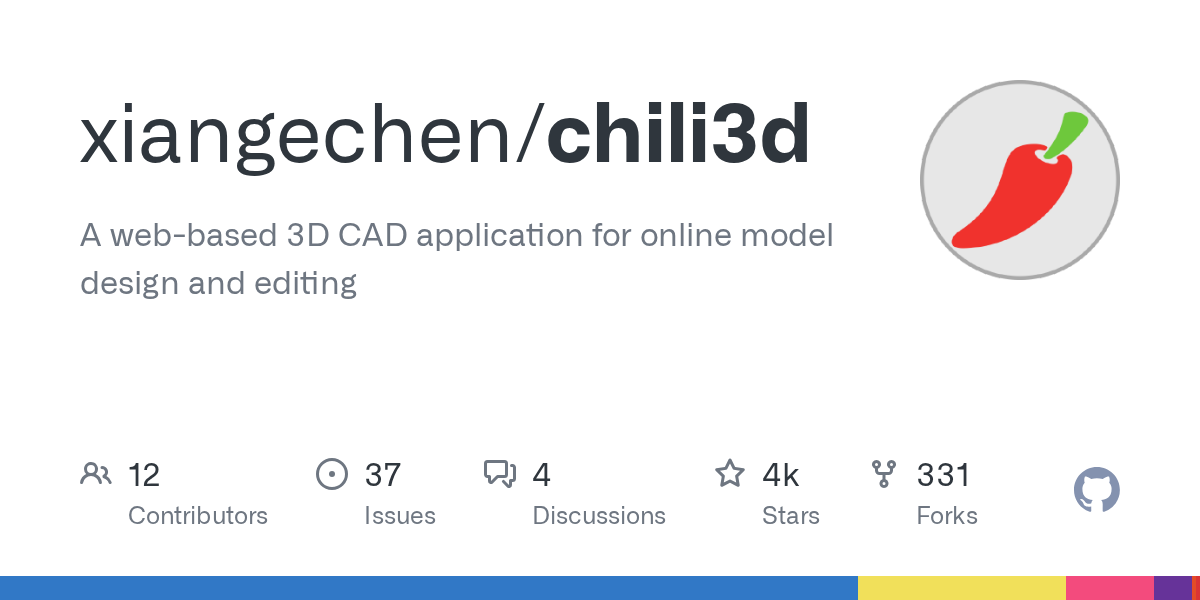Chili3D: A Powerful Web-Based 3D CAD Application for Online Design

Summary
Chili3D is an open-source, browser-based 3D CAD application built with TypeScript. It leverages OpenCascade compiled to WebAssembly and Three.js to deliver near-native performance for online 3D model design and editing. This powerful tool allows users to create, modify, and render complex models directly in their browser, eliminating the need for local software installation.
Repository Info
Tags
Click on any tag to explore related repositories
Introduction
Chili3D is an open-source, browser-based 3D CAD (Computer-Aided Design) application. Built with TypeScript, it achieves near-native performance by compiling OpenCascade (OCCT) to WebAssembly and integrating with Three.js. This allows for powerful online modeling, editing, and rendering capabilities, all without requiring any local installation. It's designed for online model design and editing, making advanced CAD accessible directly through a web browser.
Installation
To get started with Chili3D for development, follow these steps:
Prerequisites
- Node.js
- npm
Installation Steps
- Clone the repository:
git clone https://github.com/xiangechen/chili3d.git cd chili3d - Install dependencies:
npm install - Start the development server:
npm run dev # Launches at http://localhost:8080
Examples
Chili3D offers a comprehensive suite of tools for 3D design. Users can create basic shapes, perform 2D sketching, and execute advanced operations like Boolean operations, extrusion, and revolution. It also includes precise snapping and tracking features, extensive editing tools for modification and transformation, and measurement capabilities to calculate angles, lengths, areas, and volumes. For a live demonstration, visit the official Chili3D website.
Why Use Chili3D?
Chili3D stands out as a powerful solution for 3D CAD due to several key advantages. Being entirely browser-based, it eliminates the need for complex software installations, making it accessible from anywhere with an internet connection. Its use of WebAssembly for OpenCascade ensures near-native performance, providing a smooth and responsive user experience typically found in desktop applications. As an open-source project, it fosters community contributions and transparency. Furthermore, its rich feature set, including advanced modeling, precise snapping, and robust editing tools, makes it suitable for a wide range of design tasks.
Links
- GitHub Repository: xiangechen/chili3d
- Official Website: chili3d.com
- Cloudflare Deployment: chili3d.pages.dev